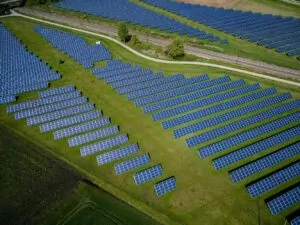 The latest United Nations Intergovernmental Panel on Climate Change (IPCC) report released last month was a dire warning formulated by thousands of climate scientists over more than six years. However, while the report highlighted the severity of the situation is also provided hope. A clear and achievable path to a more sustainable planet exists, with technology to mitigate and adapt to climate change already available.
The latest United Nations Intergovernmental Panel on Climate Change (IPCC) report released last month was a dire warning formulated by thousands of climate scientists over more than six years. However, while the report highlighted the severity of the situation is also provided hope. A clear and achievable path to a more sustainable planet exists, with technology to mitigate and adapt to climate change already available.
The report emphasizes the needs to act now, we cannot delay action any longer. Similar to previous reports, they mention that the 1.5 degrees Celsius goal in the Paris Agreement may not be achievable. Current plans and strategies will not keep up below 2 degrees Celsius. A transformation is possible, but it must happen now. If we were to limit global warming to 1.5 degrees Celsius, we would need to half global emissions.
Culpability and climate justice concerns were spotlighted as government officials and scientists reviewed the document. The initial date for approval of the document was delayed as developed countries disputed targets and the provision of financial aid to developing nations suffering most from the impacts.
 Overshooting the 1.5 degrees Celsius target is one of the key concerns, this refers to the length of time in which warming exceeds this target. We need to limit the time spent in this period but this can be difficult. Overshooting may trigger tipping points that are irreversible further hindering are ability to bring global temperatures down. The urgency to reach net zero is further stressed, creating a balance between the greenhouse gases we emit versus those we remove or prevent is essential.
Overshooting the 1.5 degrees Celsius target is one of the key concerns, this refers to the length of time in which warming exceeds this target. We need to limit the time spent in this period but this can be difficult. Overshooting may trigger tipping points that are irreversible further hindering are ability to bring global temperatures down. The urgency to reach net zero is further stressed, creating a balance between the greenhouse gases we emit versus those we remove or prevent is essential.
The report stressed the need to focus on renewables, especially since they are more economical. Fossil fuels are increasingly becoming a political question with many failed attempts to get the UN to agree on the phasing out of oil, gas and coal. Systemic changes such as this are what we need. While much of the report focused on governments and larger organisations which can drive significant change, they also mention the importance of our individual decisions. This includes adopting a plant-based diet and building cities that are made for people and bikes rather than cars. Revising energy systems, transport and industries are cheaper and easier alongside low carbon.
These next seven years are crucial for the state of the planet for thousands of years. If warming reaches 2-3 degrees Celsius, ice sheets in West Antarctica and Greenland will be irreversibly lost. It is essential that existing commitments are strengthened and strive for greater change. The report states, “There is a rapidly closing window of opportunity to secure a liveable and sustainable future for all”.
Hope is not lost! If you want to learn more about what you do check out our website and look at our offsetting options, our business solutions, and our previous guest blogs.






